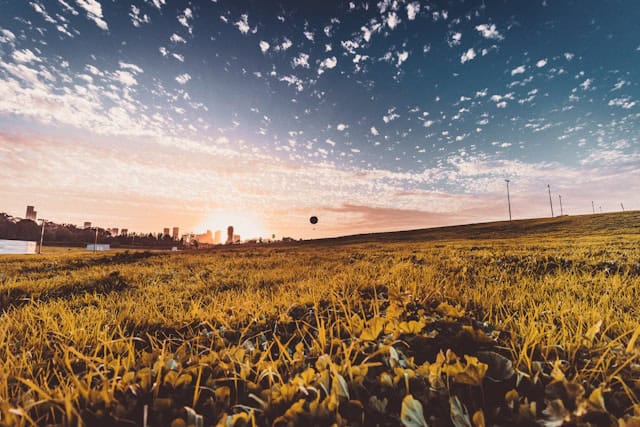A New Normal

“Sorry I’m late. I just drove past traffic lights entrance to Evan yehuda on way to Raanana, and huge traffic jam and police car. [There is] big rocket shrapnel lying on the road. No damage on road. Driving so couldn’t get a photo.”
Absolutely true story! I received this WhatsApp text Sunday morning from a colleague. I understood the context immediately: As a resident of Israel, we are used to daily rocket attacks from Lebanon, and this particular morning, a rocket had landed in our backyard. A few moments later, I replied, “What still amazes me is that we take such news as “normal”. Hang in there.” Since then, I have found myself reflecting on the astounding ability of humans to adjust to difficult situations. Impossible situations. Surreal situations.
In the year since the Israel-Gaza war erupted, we have adjusted to rules regulating public gatherings, volunteered to pick strawberries and tomatoes on farms that have lost their workforce to war, and perfected the fine art of reaching safe rooms within a minute and a half of hearing a siren. And now, over 400 days since the onset of the war, this is our normal. The “new normal” for Gazan and Lebanese citizens is far worse. Countless souls have been displaced, and these populations are living in life-threatening conditions.
I have no choice but to accept that I have a better chance of selling ice to the Eskimos than I do of improving the dire situation in the Middle East, and this is a painful realization.
This piece is not intended to be a political statement. Rather, the prompt “new normal” came at a time when I had been contemplating how someone as non-influential as myself could shake up my world and change the new normal to one that is far better. However, I have no choice but to accept that I have a better chance of selling ice to the Eskimos than I do of improving the dire situation in the Middle East, and this is a painful realization. I must adapt to this new normal, like it or not.
I feel deep sadness when I acknowledge the reality my own children and grandchildren must deal with. As opposed to leaving them a country that is strong and safe, they are inheriting a war-torn and debt-ridden nation, a deeply divided political scene, and a population of individuals in great need of emotional and/or physical rehabilitation.
Yet ironically, in a recent survey, Israel placed second on the “Happiest country to live in for the under 30 population” list. How can this be? Does this mean that these youngsters don’t mind putting their lives on the line as soldiers, fighting the ever-increasing cost of living, and dealing with daily exposure to rockets? Or does it reflect a sense of pride in their nation and a true desire to defend it?
My wish for my nation and for the world is that “new normals” be born out of favorable situations, rather than war.
Again, politics aside, the bottom line is that out of necessity, Israelis have adapted to their new normal. My wish for my nation and for the world is that “new normals” be born out of favorable situations, rather than war. This holiday season, I will pray for peace, equality, and prosperity for all, cliche as that may be, so that my children and grandchildren will have a new and improved “new normal”. Amen.









Thanks for this post- I found it to be thoughtful and relatable.